This course is an introduction to Cybersecurity
Federal University of Agriculture, Makurdi
-
WELCOME TO THE ONLINE LEARNING PLATFORM FOR THE FEDERAL UNIVERSITY OF AGRICULTURE MAKURDI, POWERED BY CIPESS.
Available courses
The PERFORMANCE BASED PROCUREMENT OF NON ON-CONSULTANCY SERVICES is the third of a series of three 5-day courses for Procurement Management. It is important to note that the series of three courses need to be completed to earn the certificates.
There is a "General" Section and 5 Modules. These are to be completed to earn a certificate. In every module, do well to complete the following:
- Instructional Video (If any)
- Course Material(s) (Read through all Course Materials)
- Module Quiz (Attempt atleast Once)
- Discussion Forum (Ensure to Post and Reply to a Post)
- Evaluations (Complete the evaluations if any)
Do Have Wonderful Online Course
The SELECTION AND RECRUITMENT OF CONSULTANTS is the second of a series of three 5-day courses for Procurement Management. It is important to note that the series of three courses need to be completed to earn the certificates.
There is a "General" Section and 5 Modules. These are to be completed to earn a certificate. In every module, do well to complete the following:
- Instructional Video (If any)
- Course Material(s) (Read through all Course Materials)
- Module Quiz (Attempt atleast Once)
- Discussion Forum (Ensure to Post and Reply to a Post)
- Evaluations (Complete the evaluations if any)
Do Have Wonderful Online Course
The Course SUSTAINABLE PUBLIC PROCUREMENT (ECONOMIC, SOCIAL AND ENVIRONMENTAL CONSIDERATION) is the first of a series of three 5-day courses for Procurement Management. It is important to note that the series of three courses need to be completed to earn the certificates.
There is a "General" Section and 5 Modules. These are to be completed to earn a certificate. In every module, do well to complete the following:
- Instructional Video (If any)
- Course Material(s) (Read through all Course Materials)
- Module Quiz (Attempt atleast Once)
- Discussion Forum (Ensure to Post and Reply to a Post)
- Evaluations (Complete the evaluations if any)
Do Have Wonderful Online Course
The Course E-WASTE MANAGEMENT is the third of a series of three 5-day courses for Environmental Sustainable. It is important to note that the series of three courses need to be completed to earn the certificates.
There is a "General" Section and 5 Modules. These are to be completed to earn a certificate. In every module, do well to complete the following:
- Instructional Video (If any)
- Course Material(s) (Read through all Course Materials)
- Module Quiz (Attempt atleast Once)
- Discussion Forum (Ensure to Post and Reply to a Post)
- Evaluations (Complete the evaluations if any)
Do Have Wonderful Online Course
The Course STRATEGIC PROCUREMENT PLANNING AND BUDGETING is the third of a series of three 5-day courses for Procurement Management . It is important to note that the series of three courses need to be completed to earn the certificates.
There is a "General" Section and 5 Modules. These are to be completed to earn a certificate. In every module, do well to complete the following:
- Instructional Video (If any)
- Course Material(s) (Read through all Course Materials)
- Module Quiz (Attempt atleast Once)
- Discussion Forum (Ensure to Post and Reply to a Post)
- Evaluations (Complete the evaluations if any)
Do Have Wonderful Online Course
The Course ADAPTIVE MANAGEMENT IN RESETTLEMENT PLANNING AND IMPLEMENTATION is the third of a series of three 5-day courses for Sustainable Social Development. It is important to note that the series of three courses need to be completed to earn the certificates.
There is a "General" Section and 5 Modules. These are to be completed to earn a certificate. In every module, do well to complete the following:
- Instructional Video (If any)
- Course Material(s) (Read through all Course Materials)
- Module Quiz (Attempt atleast Once)
- Discussion Forum (Ensure to Post or Reply to a Post
- Evaluations (Complete the evaluations if any)
Do Have Wonderful Online Course
The Course LABOUR AND WORKING CONDITIONS IN DEVELOPMENT PROJECTS is the second of a series of three 5-day courses for Sustainable Social Development. It is important to note that the series of three courses need to be completed to earn the certificates.
There is a "General" Section and 5 Modules. These are to be completed to earn a certificate. In every module, do well to complete the following:
- Instructional Video (If any)
- Course Material(s) (Read through all Course Materials)
- Module Quiz (Attempt atleast Once)
- Discussion Forum (Ensure to Post and Reply to a Post)
- Evaluations (Complete the evaluations if any)
Do Have Wonderful Online Course
The Course FRESHWATER MICROPLASTICS POLLUTION AND MANAGEMENT is the second of a series of three 5-day courses for Environmental Sustainability. It is important to note that the series of three courses need to be completed to earn the certificates.
There is a "General" Section and 5 Modules. These are to be completed to earn a certificate. In every module, do well to complete the following:
- Instructional Video (If any)
- Course Material(s) (Read through all Course Materials)
- Module Quiz (Attempt atleast Once)
- Discussion Forum (Ensure to Post and Reply to a Post)
- Evaluations (Complete the evaluations if any)
Do Have Wonderful Online Course
This Course PROCUREMENT MANAGEMENT/SUPERVISION AND PROCUREMENT AUDIT is the second of a series of three 5-day courses for Procurement Management. It is important to note that the series of three courses need to be completed to earn the certificates.
There is a "General" Section and 5 Modules. These are to be completed to earn a certificate. In every module, do well to complete the following:
- Instructional Video (If any)
- Course Material(s) (Read through all Course Materials)
- Module Quiz (Attempt atleast Once)
- Discussion Forum (Ensure to Post and Reply to a Post)
- Evaluations (Complete the evaluations if any)
Do Have Wonderful Online Course

This Course INTRODUCTION TO PROCUREMENT IN PUBLIC AND PRIVATE SECTORS is one of three 5-day courses . There is a "General" Section and 5 Modules. These are to be completed to earn a certificate. In every module, do well to complete the following:
- Instructional Video (If any)
- Course Material(s) (Read through all Course Materials)
- Module Quiz (Attempt atleast Once)
- Discussion Forum (Ensure to Post and Reply to a Post)
- Evaluations (Complete the evaluations if any)
Do Have Wonderful Online Course

This Course ENVIRONMENTAL SUSTAINABILITY is one of three 5-day courses. There is a "General" Section and 5 Modules Sections. These are to be completed to earn a certificate. In every module, do well to complete the following:
- Instructional Video (If any)
- Course Material(s) (Read through all Course Materials)
- Module Quiz (Attempt atleast Once)
- Discussion Forum (Ensure to Post and Reply to a Post)
- Evaluations (Complete the evaluations if any)
Do Have Wonderful Online Course

This Course SOCIAL STANDARDS is one of three 5-day courses . There is a "General" Section and 5 Modules. These are to be completed to earn a certificate. In every module, do well to complete the following:
- Instructional Video (If any)
- Course Material(s) (Read through all Course Materials)
- Module Quiz (Attempt atleast Once)
- Discussion Forum (Ensure to Post and Reply to a Post)
- Evaluations (Complete the evaluations if any)
Do Have Wonderful Online Course.
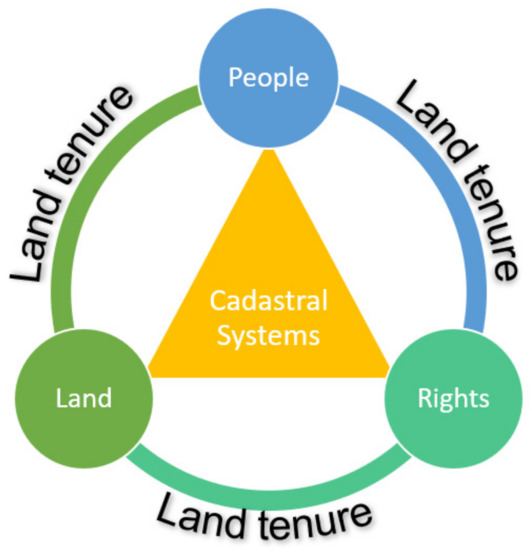
The course Land Tenure and Property Rights (SSC10) was designed to highlight importance of understanding the land tenure system in Nigeria for a sound resettlement intervention for project-affected persons (PAP) in communities.
The topics in this course include
- Land Tenure Systems
- The Land Use Act, 1978
- Property Rights to Land/Land Rights
- Access to Land in Nigeria
at the end of the course, participants should be able to:
- List 4 ways by which land is owned and acquired
- List different types of rights to land; and
- Enumerate different ways land is used
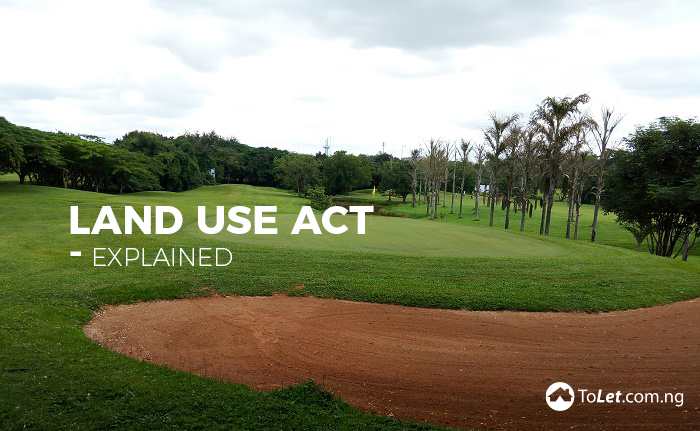
The course Land Use Act (SSC07) was designed to give an insight on the problems associated with the land tenure systems in Nigeria.
The course content is as follows:
- Concept of Nigeria Land Use Act
- Objectives of Nigeria Land Use Act
- Key features of Nigeria Land Use Act
- Advantages of Nigeria Land Use Act
- Disadvantages of Nigeria Land Use Act
- Implications of Non-Enforcement of Nigeria Land Use Act
- Meaning of Land Acquisition
- Environmental and Social Standards for Land Acquisition
- Methods of Land Acquisition
At the end of the course, participants should be able to;
- Mention 3 key features of Nigeria Land Use Act of 1978
- Outline 4 objectives of the Land Use Act and its advantages
- State 2 implications of non-enforcement of Nigeria Land Use Act
- Mention 4 methods of land acquisition in Nigeria

COURSE DESCRIPTION:
This course introduces participants to the concept of Internally displaced persons which have become a burden of countries globally.
Wars, conflicts and natural disasters have displaced a significant number of individuals from their usual habitats. It is often inevitable to displace people in order to implement infrastructural projects. To ensure that negative impacts on project affected persons are minimized and satisfactorily mitigated, social standards must be applied. This course discusses issues around internal displacement from social standards perspective.
After completing this course, participants will be able to:
- Explain the concept of internal displacement
- Distinguish between an IDP, PAP and a refugee
- Explain the impact of displacement

The Course Gender Issue in Displacement and Resettlement (SSC04) is designed to address displacement challenges as the number of people who are forcibly displaced reach an all-time high.
Most of these challenges are gender related. The course content is as follows
- Introduction
- What is displacement
- Types of displacement
- Causes of displacement.
- Gender issues in displacement
- Cases studies
- Group work/presentations
At the end of this course, participants will be able to:
- Explain what displacement is.
- Describe different causes of displacement
- List the problems of gender in displacement
- Explain how to tackle the challenges.

Course Description
Development projects always come with direct and/or indirect social impacts that inflict hardships on the affected persons and communities. Identifying and assessing the weight of these impacts on the affected persons is imperative. Social impact assessment looks at all the potential impacts that policy changes or new development project may have on the affected persons and communities. These are adequately contained in this course.
After completing this course, participants will be able to:
Explain the basic indicators of impact identification and assessment
Identify and apply the various methods of impact assessment.
Explain the importance of impact assessment in resettlement.
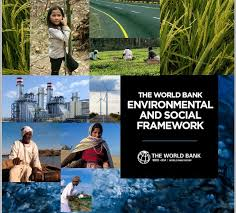
The course Environmental and Social Framework (ESF) and Environmental and Social Assessment (ESA) Process (ESC10) exposes trainees to the Definition and purpose of the ESF, An overview of ESF, ESF Policy and Directives, Environmental and Social Assessment (ESA) Process.
The objectives of the course are to;
(i) Expose trainees to situational relevant knowledge and practicability of the World Banks’s Environmental and Social Framework (ESF), issues surrounding its application, and policies for operationalization of the ESS components and the ESA process.
(ii) Develop competence in mitigating associated risks linked to any project via monitoring and implementing environmental and social -complaint activities of the Bank.
Course outline include:
- Definition and purpose of the ESF
- An overview of ESF
- ESF Policy and Directives
- Environmental and Social Assessment (ESA)
- Environmental and Social Assessment (ESA) Process
- Case study/assignment/group work
- Conclusion
At the end of the training, trainees will gain understanding of:
- The World Bank ESF and associated processes in the assessment of Environmental and Social component of the ESS. conflicting theories on the existence of man and will develop critical thinking prowess for rational decision making.
- Applying the World bank’s directive in line with the ESF during project design, implementation and monitoring
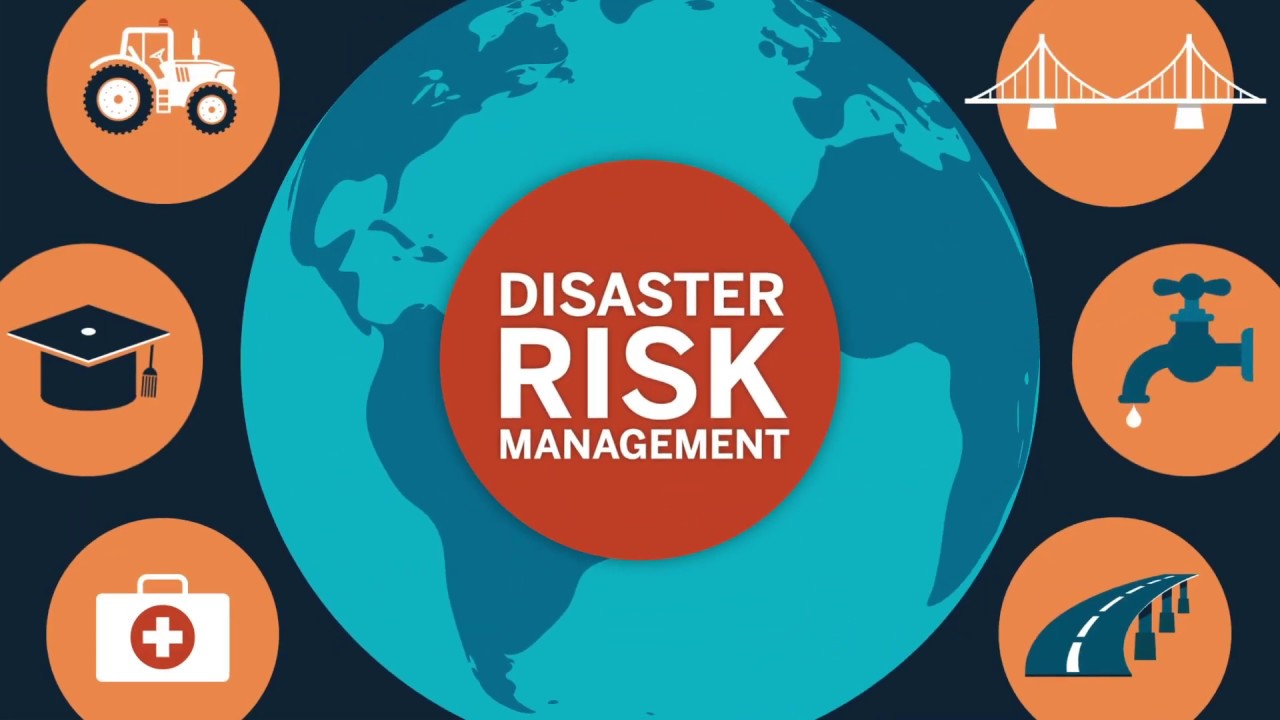
The course Disaster Risk Management (ESC09) will introduce you to the field of disaster risk management (DRM) and the principles adopted for its reduction i.e. disaster risk reduction (DRR).
The first part of the module will focus on defining the basic, but most important, terms in relation to disaster studies. The different elements of disaster risk management will enjoy attention, and how these different elements contribute to our understanding and better management of risk and disasters will be explained.
Course outline includes the following:
- What disaster is
- Types of disaster
- Aftermath of Disaster
- What Disaster Risk Management entails
- Disaster Risk Management (DRM)
- Disaster Risk Management cycle
- Line DRM Institutions in Nigeria
- Communication in DRM
- Mainstreaming DRR in Development
- Case study/assignment/group work
- Conclusion
At the end of the course, participants should be abreast with:
- Common terms in disaster risk management
- Phases in Disaster Risk Management cycle
- Disaster Communication Mainstreaming disaster risk reduction in development
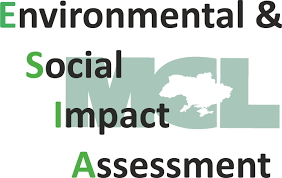
The course "Review Process Of The Environmental And Social Impact Assessment" help to evaluate the completeness and suitability of the information provided in the ESIA or ESMP reports from a technical and decision making viewpoint.
the specific objectives of the course are;
- Identify three types of project E&S impacts
- List the six stages of ESIA
- List three benefits of ESIA review
- Enumerate five contents of the review checklist
- Explain six ESS of the WB ES Framework
- Elucidate review questions on any two ESS
- Make an informed decision on an ESIA review report
The Course Outline Include
- Introduction
- Hazards, Risks & Project Categorization
- ESIA or ESMP?
- Risk Mitigation Hierarchy
- The 6 Steps of ESIA
- Benefits of ESIA Review
- Environmental & Social Impact Assessment (ESIA) report
- Review Process of the ESIA
At the end of the course, the participant should be able to:
- Execute a proper Review of an ESIA report
- Write an appropriate Environmental Impact statement (EIS)
- Take a decision on the proposed activity

The course, "Development of Environmental and Social Management Plan (ESC02)" adequately contains a set of principles, procedures, practices, implementation and monitoring procedures contained in the World Bank's Environmental and Social Framework (ESF).
The course content is as follows:
- Introduction & Project environmental and social safeguards and assessment
- Overview of Environmental and Social Management Plan (ESMP)
- ESMP in project cycle
- Cross-cutting issues in ESMP
- Preparation of ESMP Report and Case Study
At the end of the course, the participants should be able to:
- State and justify the WB’s environmental & social policy for investment financing and need for sustainability
- Classify and identify the environmental & social tools for project categories
- Define ESMP and enumerate its purpose, objectives, principles and characteristics
- Justify the place and role of ESMP in project cycle
- List additional cross-cutting issues in ESMP
- Describe how to write an ESMP Report

The course "Advanced Contract Management (PSC10) " is intended to participants to the subject matter of contract management; its process, approaches and strategies.
It introduces trainees to the international and domestic laws that are in place to ensure that monies borrowed or received from donors are utilized for the purpose for which the funds were obtained. It also covers activities preceding contract management as well as the upstream (contract administration) and downstream (contract management) activities which are all geared towards value for money and fitness for purpose.
Course Objectives
The specific objectives of the course are to:
- Appreciate what contract management is and the skills required for the effective discharge of contract management functions;
- Understand the stages in contract management;
- Establish the linkage between project management and contract management.
Course Outcomes
This course covers the following topics:
- Definitions of Contract and Contract Management and links to Project Management,
- Contract Control Rectangle (Time, Quality, Cost and Scope),
- Sources and Types of Risk and Relationship Management in contracts,
- Purpose and Elements of a Contract Management Plan and setting of relevant KPIs for monitoring and assessment of vendors’ performance,
- Contract Management Plan for Goods, Works and Consultancy and Non-Consulting Services and related issues,
- Requirements for valid claims, common types of claims and Valuation/Costing of claims as well as Case Studies on contractors’ claims,
- Amicable Settlement and Alternative Dispute Settlement Mechanisms (Dispute Management Board),
- Taking over Certificate, Defects Liability Period in Works contracts and Contract Close-Out.
At the end of the course, participants should be able to:
- Appreciate what contract management is, the requisite skills and the stages involved in contract management;
- Establish the linkage between project management and contract management;
- Recognize Anglo-American law system as applied in contracts finance by MDBs;
- Understand contract key parameters (time, cost, quality and scope) and apply limited set of Key Performance Indicators (KPIs) to facilitate monitoring of actual versus planned achievement;
- Recognize sources and types of risks in contract management;
- Map contracts stakeholders and plan relationship strategy
- Recognize positive and negative factors that can influence relationship management;
- Appreciate contract management plan, key elements/components of a fit for purpose management plan;
- Set relevant Key Performance Indicators (KPIs) that truly measure progress towards the achievement of Procuring Entity’s (PE’s) objectives;
- Develop contract management plan for works, goods, and consultancy services;
- Understand basic requirements for a valid construction claims, situations giving rise to the construction claims, stages in claim management practice, types of contemporary records that are need to substantiate claims;
- Understand the typical structure of a claim and the principles applicable to valuation/costing of claims;
- Recognize need for amicable settlement provision in contracts and the various types of alternative dispute settlement mechanisms;
- Choose the applicable arbitration procedure relevant to the contract;
- Follow adequate procedures for verification of completion of the works, issuing of completion or takeover certificate and discharging activities designed to ensure that the contractor fulfills its obligation during the defect liability period and processing the contract’s closeout procedures.

The course Procurement Management for Goods (PSC06) is designed to help participants:
- Know about the options available to meet the PE’s identified needs for Procurement of Goods based on related business case analysis.
- Quantify needs in the procurement of Goods and the economic order factors quantities;
- Itemize the factors influencing the right packaging into procurement lots.
At the end of the course, participants should be able to :
- Define the terms "Procurement" and "Goods."
- List the options available to meet a PE’s identified needs for procurement of Goods.
- Quantify the needs in the procurement of Goods.
- Define the economic order of quantities;
- Understand the factors influencing the right packaging into procurement lots.

The Course Procurement for Works (PSC05) is geared towards understanding the following as related to procurement of goods and works:
- Differences between Goods and Works procurement
- Factors influencing the choice of the type of Works contracts
- Types of Works Contracts
- Variants / Derivatives of the three basic types of Contracts
- Employer Influence/Risk in the different types of contracts
By the end of this Course, the participants will be able to:
Describe the factors that influence the choice of a particular contract type'
Explain the risks faced in various types of Works contracts
Recognize the degree of influence that the Employer/Procurement Entity (PE) can exert on the Contractor in each type of contract

The Course Procurement Management of Plant, Design, Supply and Installation Contracts (PSC04) is divided into 5 days.
At the end of this course, the participants should be able to do each of the following tasks:
- Explain the key features of electromechanical plants
- Define the facilities
- Identify the applicable conditions required when the Procurement Strategy may call for the use of Plant, Design, Supply, Installation and Commissioning Contracts.
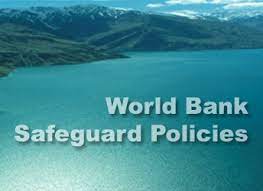
The course Safeguard Policies of the World Bank (ESC07) exposes trainees to the definition of World Bank Safeguard Policies, reasons for World Bank Safeguard Policies, list of the Operational Policies (OPs) of the World Bank, Key roles in World Bank Safeguard Policies, Safeguard Policy Requirements, categories of Projects, Operational tool for ESIA applications and the link between safeguard polices and Environmental and Social Framework (ESF).
The objectives of the course are to;
- Expose trainees to the underlying Principles of the Operational Policies (OPs) of the World Bank and the reasons for World Bank (WB) Safeguard Policies.
- Acquit trainees with the knowledge of Operational Policies (OPs) of the World Bank in every proposed project with perceived potential impacts, roles in WB Safeguard Policies among stakeholders and develop trainees’ ability to classify proposed projects according to Project Categories.
The Course Outline
- Definition of terms
- Meaning and reasons of World Bank (WB) Safeguard Policies
- The broad values and the underlying Principles of Operational Policies (OPs) of the WB.
- List and Classifications of Operational Policies (OPs) of the World Bank
- Safeguards Range of Application
- Key Roles in World Bank Safeguard Policies: Who does What? and Safeguard Policy Requirements
- Environmental Safeguard Requirements for Normal Operations
- Projects Categories
- Operational Tool for ESIA Applications, reasons why ESIA is conducted and the content of an ESIA Report
- Link between World Bank Safeguard Policies and Environmental and Social Framework (ESF)
- Environmental and Social Standards (ESS)
- Case study/ assignment/ group work
- Conclusion
This course is a step by step demonstration on the use of CIPESS FUAM LMS.
At the end of this course, The Participants would be able to
- Organize the Structure of the LMS
- Upload course materials for participants.
- Create quizzes, give assignments and grade them accordingly.
- Begin and facilitate online discussion forums
Description on the usage of CIPESS FUAM LMS For MASTERS AND PGD Participants.
